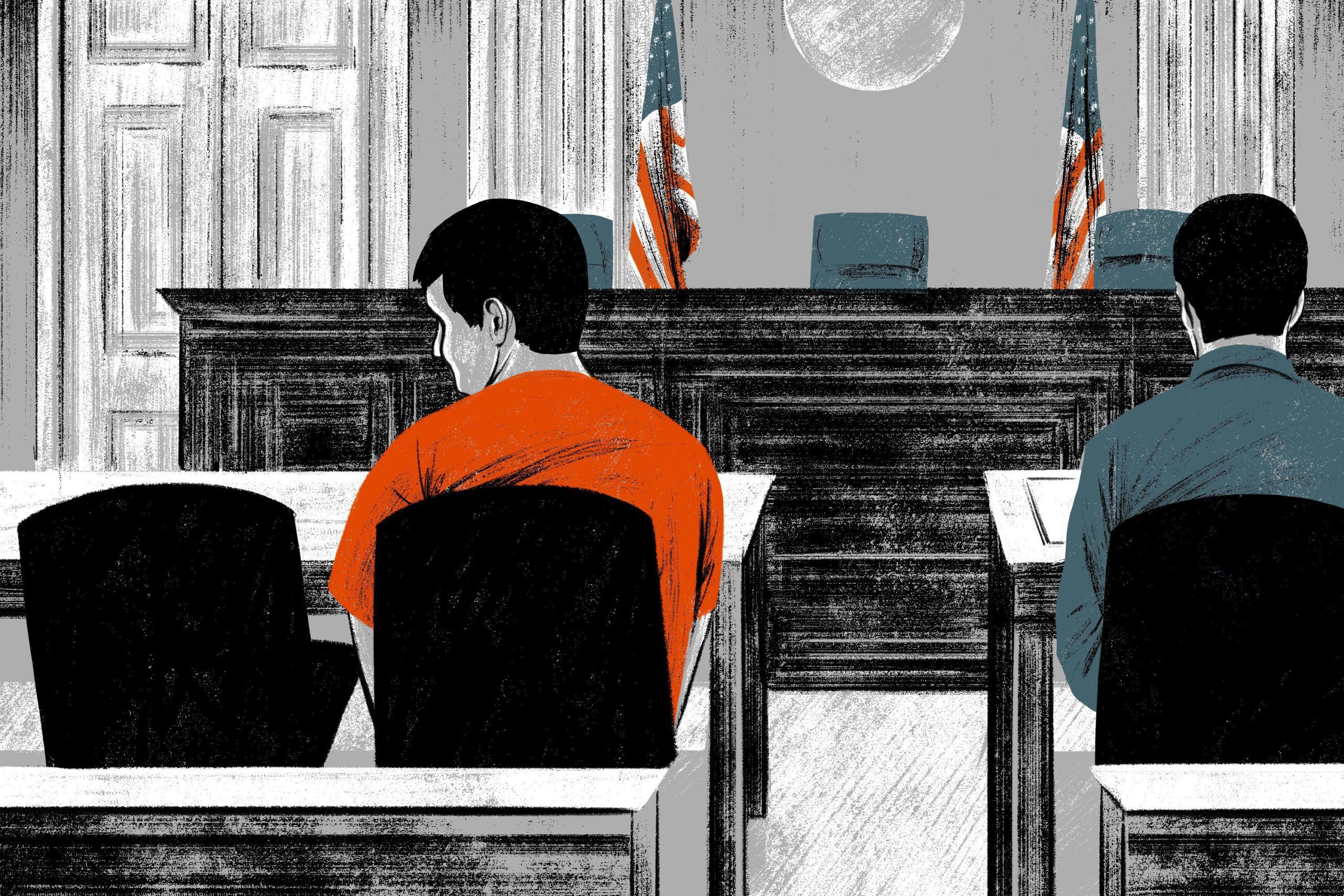Advisors on civil rights in Maine are recommending the U.S. Department of Justice investigate how the state provides lawyers to poor defendants and are urging the state Legislature and Gov. Janet Mills to “provide adequate funding” for indigent defense services.
Maine’s advisory committee to the U.S. Commission on Civil Rights on Thursday voted in favor of a report that urges the federal commission and state lawmakers to work toward a more equitable indigent defense system and funds both public defenders and private contracted defense lawyers.
News that a Maine Superior Court Justice had rejected a proposed settlement agreement to reform Maine’s indigent defense services the day before because it was not “judicially enforceable” weighed heavily on the group’s final decision.
Eric Mehnert, an advisory committee member and Chief Judge of the Penobscot Nation Tribal Court, said the report shows a systemic failure of Maine’s indigent defense system at this point in time.
The report could be the basis for Maine lawyers to bring civil rights lawsuits and for federal prosecutors to open a case that eventually could reach a consent decree that requires the state to make changes, he said.
“It’s always hard to predict what the DOJ will do,” Mehnert said of a potential federal investigation. “But I think it is warranted, and I don’t take that thought lightly.”
All 50 states and Washington, D.C., have an advisory committee that studies and makes recommendations to the U.S. Commission on Civil Rights about deprivations of rights or discrimination based on race, color, religion, sex, age, disability and national origin, or the administration of justice in their state.
Maine’s advisory committee has been looking into the Maine Commission on Indigent Legal Services, or MCILS, since June 2022. MCILS is responsible for providing attorneys to criminal defendants and parents accused of abuse or neglect when they cannot afford to hire their own lawyer.
Maine is required by the state and federal constitutions to provide a lawyer at the state’s expense to any criminal defendant who cannot afford to hire one.
Maine’s advisory committee found that the state’s indigent defense system is underfunded and is unable to meet Maine’s current demand for legal representation. People who are racial minorities and in other federally protected classes are disproportionately being impacted, and attorneys providing indigent defense services need to be resourced the same as prosecutors, the advisory committee found.
“Without a legal system that can adapt to the changing needs of its population, the state is often excluding those with lower income from receiving quality legal representation,” according to the report.
The report comes on the heels of a state Superior Court Justice Michaela Murphy’s rejection on Wednesday of a proposed settlement agreement by the ACLU and state officials to reform Maine’s indigent defense system, the Monitor reported. The ACLU of Maine had filed a class action lawsuit against MCILS leaders for their alleged failure to create an effective indigent defense system.
Mehnert said Murphy’s decision “hit it right on the head.” The proposed settlement couldn’t be enforced by the court and also hurt defendants’ right to sue the state for a systemic failure to provide them counsel, he said.
“We’re advocating that something be done and something be done now,” Mehnert said of the committee’s report approved Thursday.
From his own experience as a lawyer, Mehnert said the longer a person has to wait the more likely they are to say they’re guilty as part of a plea deal to be released from jail. But a criminal record can have lasting consequences, he said.
Maine risks more low-income defendants taking plea deals if the state cannot provide lawyers to them quickly.
The proposed settlement had said that MCILS and the ACLU would collectively advocate for approval by legislators for more money and public defender offices. But there was no guarantee that the groups’ advocacy would be successful.
Maine was the only state in the nation that did not employ any public defenders until late last year. A “rural defender unit” made up of five lawyers currently works on cases across the state for MCILS, and state lawmakers approved funding to open the state’s first standalone public defender office this year.
But the system still largely relies on court-appointed lawyers to represent indigent clients.
State lawmakers have not funded a statewide public defender system.
“The elephant in the room, which I think Justice Murphy was implying, (is) until the Legislature funds a full-time criminal defenders office, this problem can’t be solved,” said Diane Khiel, vice chair of the committee before the vote.
The committee recommends state officials set up a hybrid system of public defenders and private contracted defense lawyers in every prosecutorial district, “to ensure clients are assigned an attorney in a timely manner and that the attorney provides effective and meaningful counsel.”
The Legislature should also look at decriminalizing certain offenses and providing all the support necessary for the state courts to alleviate the backlog of cases, including by considering proposed legislation to set a speedy trial timeline, the report said.
Maine’s advisory committee also called on the Maine Bar Association and Board of Overseers of the Bar to develop training about “client autonomy and trusting” attorney-client relationships, and to review policies to see if the number of attorneys who can provide public defense services in Maine can be increased.
The University of Maine School of Law is encouraged to develop clinics and internships for law students to develop career paths to provide indigent legal services. And to develop part-time and night school programs to train people interested in public defense, according to the report.







